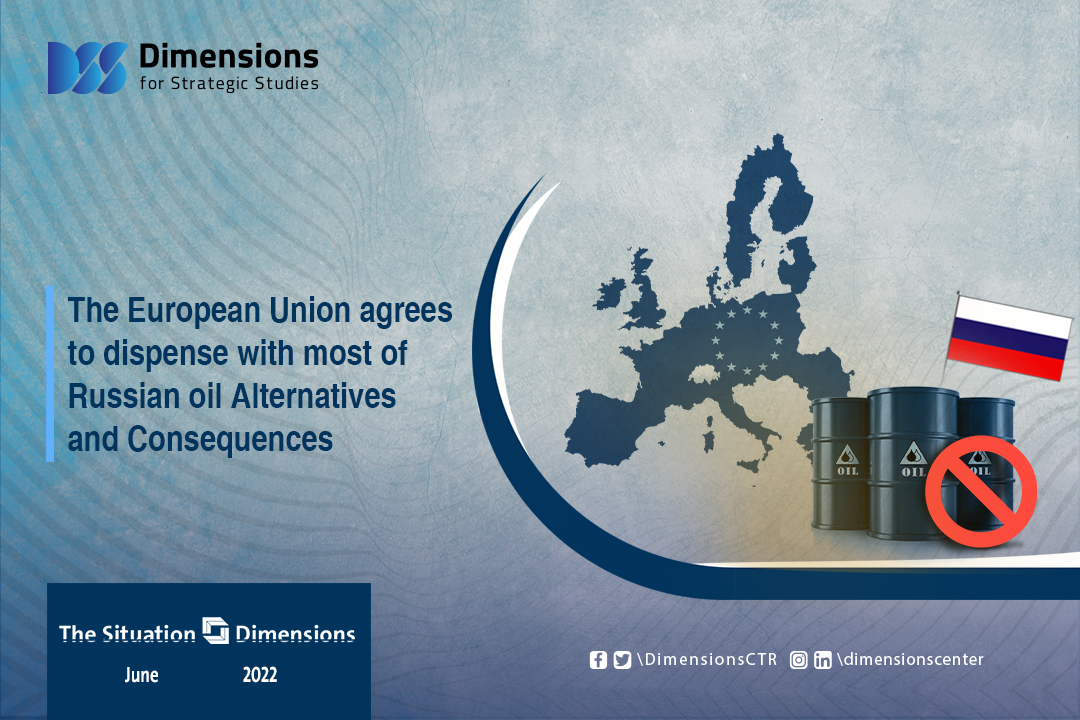
The European Union agrees to dispense with most of Russian oil Alternatives and Consequences
2022-06-032044 view
The European Union (EU) countries have been trying to end Russian hegemony over oil products to EU countries since the start of the Russian invasion of Ukraine.
For instance, as early April 2022, European countries had already managed to ban coal imports from Russia. The ban was planned to start in early July of the same year. Such a decision deprived Russia of more than 4 billion euros annually and it was an expedited procedure to say that the EU countries were originally working on dispensing with Russian coal's imports in order to get rid of the most harmful sources of environmental pollution. For European countries, such a step reflects commitments to local and international environmentalise. The countries of the EU are proofing to be serious about gradually dispensing with Russian gas.
With regard to oil, the European countries are trying to completely end importing it from Russia; especially when only 28% of their oil imports from Russia.10% from US, 8% from Norway, 7% Saudi Arabia, 7% from the United Kingdom, and only 6 % from Kazakhstan and Nigeria for each. The European Member states get the rest of the oil imports through intermediaries from different suppliers, who secure two million barrels a day from Gulf countries, the United States of America and Norway, should the Europeans are able to phase out the same quantities of Russian oil in less than a year. Saudi Arabia, the UAE and Iraq can provide an additional 3.5 million barrels of oil per day.
In fact, EU countries agreed with great difficulty to end their dependence on Russian oil by the end of 2022, i.e. within six months. Hungary with its 10% of the total EU oil imports from Russia was exempted from this commitment due to the fact it has no seaports to get oil through pipelines - to continue importing Russian oil.
The step of gradual dispensing with the Russian oil is to urge oil producing countries to raise their production efficiency to respond to market requirements. As it was expected Iraq, Libya, Nigeria and Algeria proofed to be able to produce an additional million barrels a day during the next few months. Iran could possibly eagerly produce 1.5 million barrels a day.
The European Union’s decision immediately led to a rise in oil prices. Parallel to that however, oil-producing countries agreed to increase production by 650,000 barrels a day to meet the markets’ requirements. Agreements between oil producers and Western countries was behind this increase of production, which means that the EU countries will definitely be able to actually secure their needs without incurring additional costs, especially if producers are well pressured to increase production to compensate for Russian oil.
Russia, in turn, will be deprived of important resources amounting to $70 billion annually paid by the European Union. To make for such a shocking loss, Russia should secure alternative markets like the ones in Asia, especially China, which is being pressured not to provide Russia with such a market.





